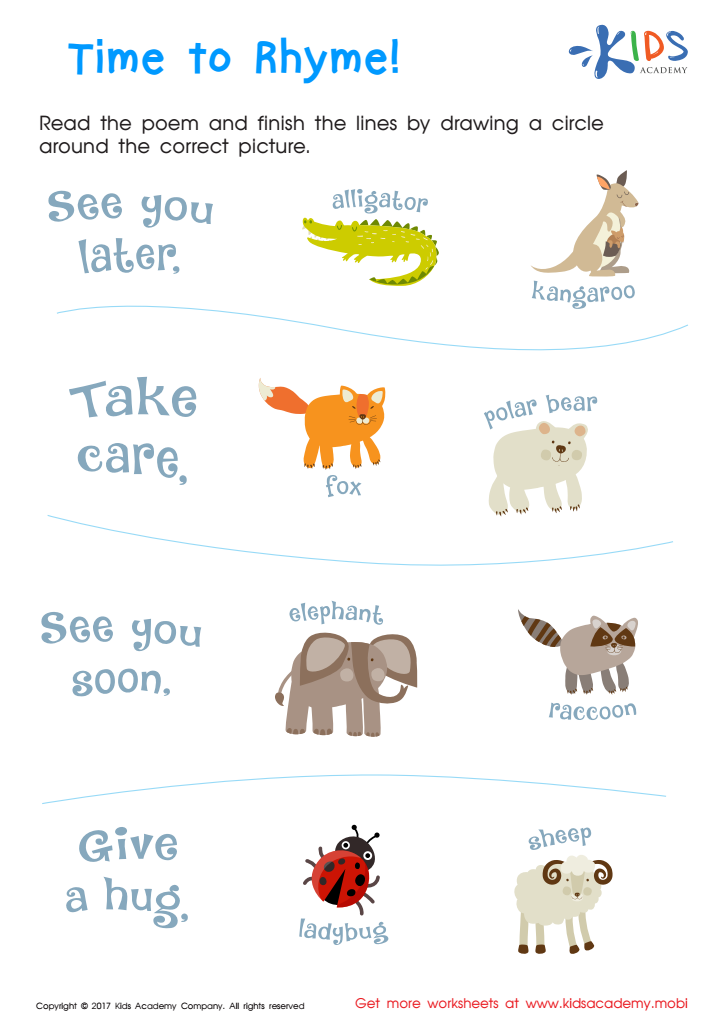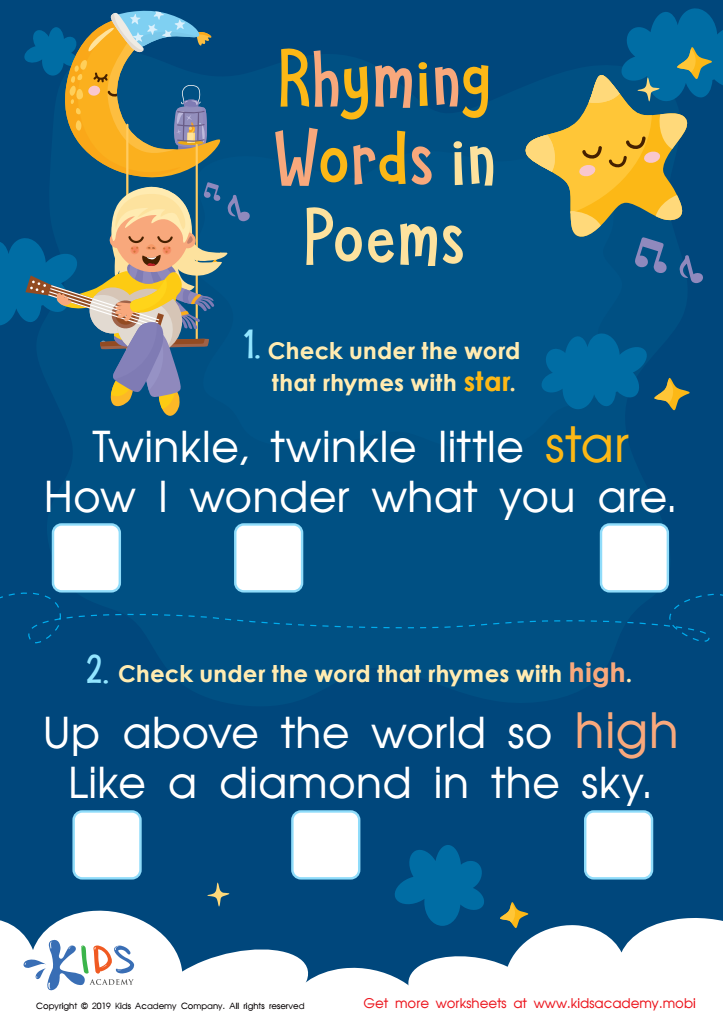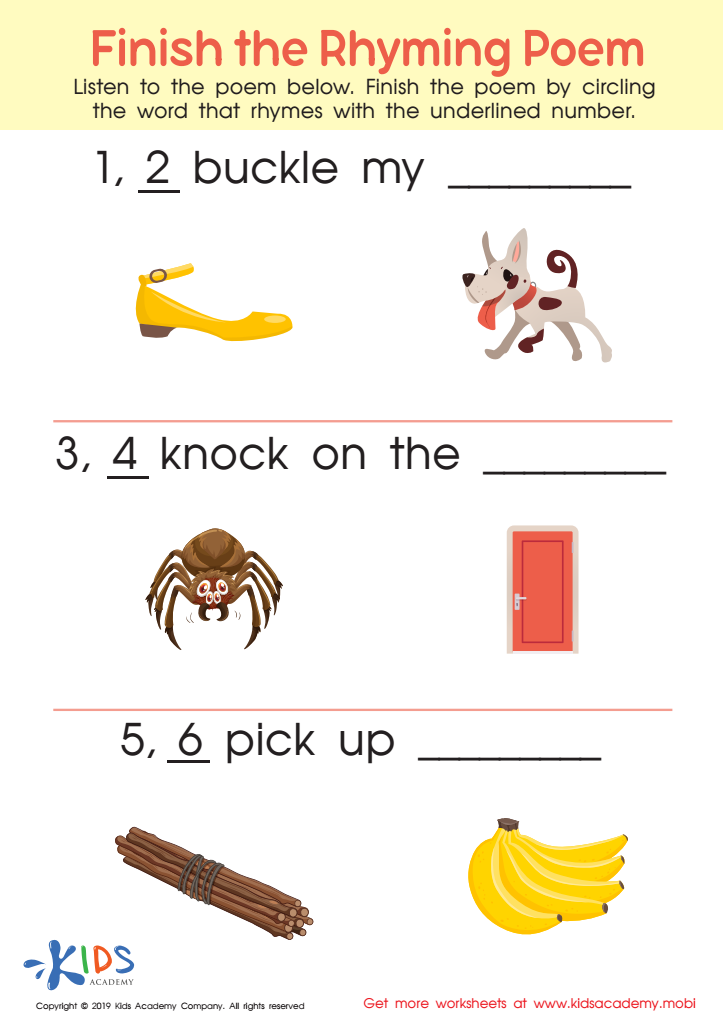Reading comprehension Normal Rhyming Words Worksheets for Ages 3-4
5 filtered results
-
From - To
Explore our engaging Reading Comprehension Normal Rhyming Words Worksheets designed for children ages 3-4! These fun, interactive activities will help young learners identify and understand rhyming words, enhancing their vocabulary and reading skills. Each worksheet is crafted to capture the attention of preschoolers, featuring colorful illustrations and simple instructions. As kids match rhyming pairs and complete enjoyable exercises, they’ll develop critical thinking and comprehension abilities in a playful environment. Ideal for home or classroom use, these worksheets foster early literacy and a love for reading. Encourage your child's learning journey today with our delightful rhyming words worksheets!


Rhyming Words Rhyming Worksheet


First Words: Picture Rhymes Worksheet


Time to Rhyme Rhyming Worksheet


Rhyming Words in Poems Worksheet


Finish Rhyming Poem Worksheet
Recognizing and understanding rhyming words is a critical aspect of reading comprehension, especially for children aged 3 to 4. At this stage, enhancing language skills is foundational, as kids begin to explore the sounds and structures of words, fostering their emerging literacy. Engaging with rhymes helps children develop phonemic awareness, which is crucial for reading readiness. When parents and teachers prioritize rhyming activities, they provide toddlers with a playful way to explore language that can improve their vocabulary, pronunciation, and spelling abilities.
Moreover, understanding rhyming helps children develop auditory discrimination skills, allowing them to hear similarities and differences in words. This skill is vital when it comes to recognizing patterns in sentences and understanding the flow of stories. Additionally, the rhythmic and repetitive nature of rhymes makes learning enjoyable and memorable, reinforcing a child's love for reading.
By incorporating normal rhyming words into daily interactions, be it through songs, nursery rhymes, or simple storytelling, caregivers create rich, engaging learning environments. This not only aids in language development but also strengthens the child's cognitive abilities and analytical skills—crucial elements for future academic success. Hence, fostering a love for rhyming at an early age can lay a strong foundation for lifelong reading proficiency.
 Assign to My Students
Assign to My Students















